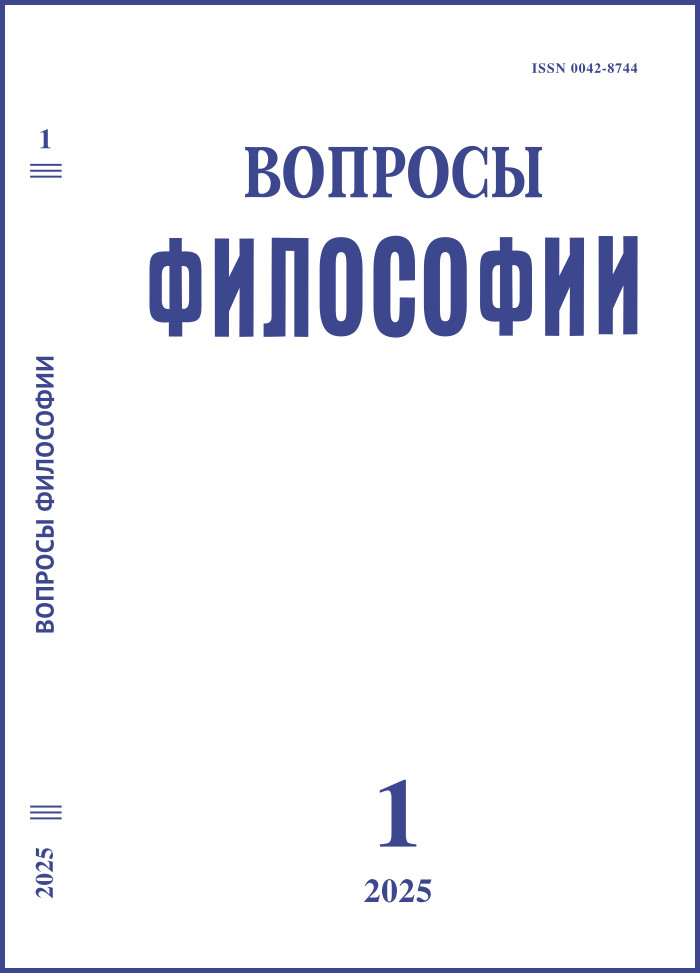The Unity of Ethics and Philosophical Anthropology
DOI:
https://doi.org/10.21146/0042-8744-2025-1-75-85Keywords:
ethics, philosophical anthropology, morality, values, ultimate questions, being, metaphysics, science, world, cognitionAbstract
The article shows that by answering the profound metaphysical questions of existence about life, death, happiness, freedom, work in its non-utilitarian meaning, etc., a person discovers the reasons why he should be moral, that it is the morality that improves the quality of his life. This includes ideas about self-realization, the orientation of life towards higher values, and the achievement of goals shared with other people. At the same time, morality, through the assessments of others and society as a whole, turns out to be able to show the uniqueness and significance of the activity that a person carries out. We demonstrate that a person constantly expands his view of the world, creates philosophical constructions of a metaphysical nature, i.e. tries to formulate general ideas about the world, which further stimulate scientific search. The same expansion of the view of the world, in fact, occurs in the process of comparing different moral theories, generalizing various life practices. When analyzing the phenomenon of death, we show that death, on the one hand, sets a scale of life that correlates with the time allotted to a person. But, on the other hand, a person cannot constantly think about death, because the essence of his being lies in such activity, which is associated with the realization of goals shared with other people. The conditions for the formation of moral codes are considered, it is shown that the codification of a number of human relationships as formalized moral forms of communication does not deny freedom of moral choice and personal moral responsibility.

